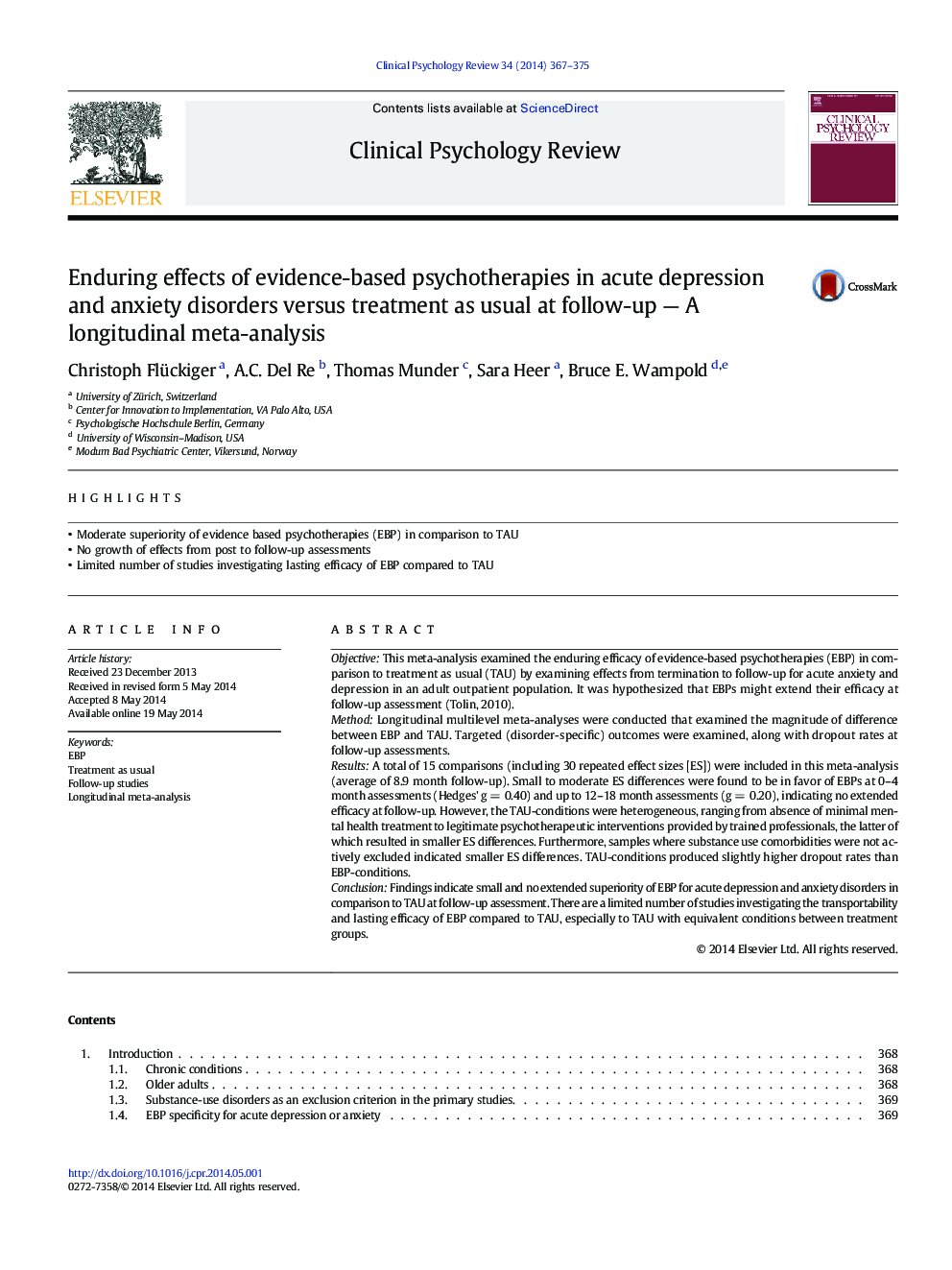| Article ID | Journal | Published Year | Pages | File Type |
|---|---|---|---|---|
| 903625 | Clinical Psychology Review | 2014 | 9 Pages |
•Moderate superiority of evidence based psychotherapies (EBP) in comparison to TAU•No growth of effects from post to follow-up assessments•Limited number of studies investigating lasting efficacy of EBP compared to TAU
ObjectiveThis meta-analysis examined the enduring efficacy of evidence-based psychotherapies (EBP) in comparison to treatment as usual (TAU) by examining effects from termination to follow-up for acute anxiety and depression in an adult outpatient population. It was hypothesized that EBPs might extend their efficacy at follow-up assessment (Tolin, 2010).MethodLongitudinal multilevel meta-analyses were conducted that examined the magnitude of difference between EBP and TAU. Targeted (disorder-specific) outcomes were examined, along with dropout rates at follow-up assessments.ResultsA total of 15 comparisons (including 30 repeated effect sizes [ES]) were included in this meta-analysis (average of 8.9 month follow-up). Small to moderate ES differences were found to be in favor of EBPs at 0–4 month assessments (Hedges' g = 0.40) and up to 12–18 month assessments (g = 0.20), indicating no extended efficacy at follow-up. However, the TAU-conditions were heterogeneous, ranging from absence of minimal mental health treatment to legitimate psychotherapeutic interventions provided by trained professionals, the latter of which resulted in smaller ES differences. Furthermore, samples where substance use comorbidities were not actively excluded indicated smaller ES differences. TAU-conditions produced slightly higher dropout rates than EBP-conditions.ConclusionFindings indicate small and no extended superiority of EBP for acute depression and anxiety disorders in comparison to TAU at follow-up assessment. There are a limited number of studies investigating the transportability and lasting efficacy of EBP compared to TAU, especially to TAU with equivalent conditions between treatment groups.
